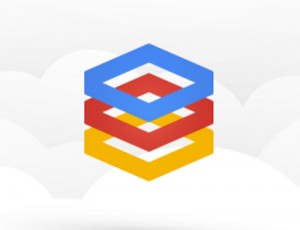 Google’s new IaaS offering, called Compute Engine, is one of the biggest things that has happened to the cloud computing industry in such a long time and here are five reasons why:
Google’s new IaaS offering, called Compute Engine, is one of the biggest things that has happened to the cloud computing industry in such a long time and here are five reasons why:
PaaS is still to ambitious to work on a large scale
Microsoft’s failure to create a successful business out of Windows Azure as it was originally built and Google’s similar lack of success with the App Engine is any indication, it’s that Platform as a Service is still not ready, and is currently way behind Amazon Web Services. MS and Google still back PaaS, but they already know that IaaS is the way to go if they want to be competitive in the industry.
Openstack has become more important in the industry
Right now, Openstack is criticized for not being mature enough and having a development process that is significantly slower than Amazon’s AWS, but large enterprises have always been scared of being locked into a single cloud computing platform, especially now that they are moving towards hybrid cloud models that span both public and local clouds. Openstack is the one shining beacon of hope, all that’s needed is for Rackspace to build its Openstack-based cloud into something that can compete with Windows Azure, AWS, and Compute Engine when it comes to higher level services.
There’s no longer any sense in competing on scalability
With the market for price or scalability already cornered by Microsoft, AWS and Google, there’s really no sense in trying to drive prices down. Google and Amazon in particular are hard to beat, with Compute Engine being touted as half as expensive as other clouds, while AWS has a long history of cutting prices. All of these providers have the necessary volume to further cut prices, should it ever come down to a price war. So while there’s room for plenty of other cloud providers, they need to offer something different that will justify the higher price point.
Facebook needs to come out with its own IaaS
While Facebook’s offering will probably function differently due to the different set of developers they are targeting, there’s still a business potential in letting organizations build apps on the Facebook platform. And Facebook certainly has the ability to pull this off, based on their scale and infrastructure smarts. It is also interesting to see what they can come up with using their low power ARM processor-based servers, which they have been experimenting on for quite some time now.
Google may become the force to be reckoned with in the cloud
While still not mature enough, Google’s Compute Engine is poised to round out Google’s already impressive suite of cloud offerings around Chrome, Apps, and Drive. Google also has their App Engine under their sleeves, which is currently home to a million apps. It’s not much by industry standards, but a million apps is impressive considering the bad start resulting from angering many existing developers due to pricing changes last year. AWS is on a different path, with its focus on IaaS capabilities and their app marketplace, so right now only Microsoft is close to reaching the number of cloud products that Google has. VMware has a few things in place that will let them enter the industry, but right now they’re still a long way from being considered a real player in the cloud industry.